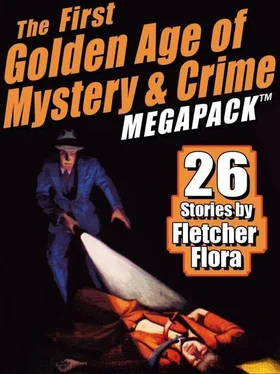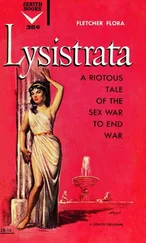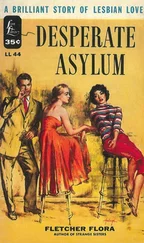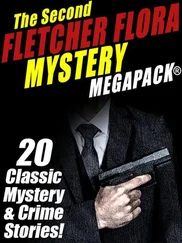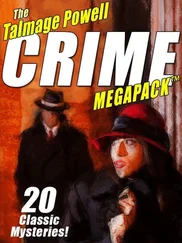But it was too early for the final hour of public visits, and the chapel was closed. I tried the door and found it locked. Leaving the vestibule, I went around the chapel, through Uncle Ned’s office, and into the area in the rear. But all the other doors were closed, and there didn’t seem to be a soul there, which was odd and unusual; and then I heard the murmur of a voice and of another voice in apparent reply. They came from one of the closed rooms, and I went to the door and listened. The words were faint, a little blurred, but distinguishable.
“Did you get my ticket and reservation?” a voice said.
“Here they are,” another voice responded. “The reservation is for the ten o’clock train to Chicago tonight.”
“You’ll have to drive me to the city in time to catch it.”
“Don’t worry about it. I’ll get you there.”
“Thanks, Ned. I can’t tell you how much I appreciate your kindness.”
So one of the speakers was Uncle Ned. I felt relieved, somehow exonerated of eavesdropping, and I promptly announced my presence by knocking on the door. There was, following this, a rather prolonged interval in which nothing happened, and then Uncle Ned opened the door and saw me standing there.
“Why, Calvin!” he said. “What on earth are you doing here? Come in, boy, come in.”
Entering the room. I was surprised and a little alarmed to find my mother present. I was afraid she would be angry with me for coming to Uncle Ned’s funeral parlor without permission, but apparently she was not. She smiled in a kind of abstracted way, as if she were thinking about something quite remote from my petty delinquency, and came over and put her hand on my head.
“Hello, dear,” she said. “This is a nice surprise. Say hello to Dr. Crandall.”
Dr. Crandall was the only other person in the room. He seemed to me at the time tremendously experienced and wise, but he was actually in his late thirties and had been in practice no longer than ten years at most. Besides being a personal friend to my mother and Uncle Ned, he was our family physician and had attended my father before his death, and so his presence was not unusual. I spoke to him politely, as he did to me.
“Why have you come here, Calvin?” Uncle Ned said. “You were to wait at home until we called for you before the services.”
“I came to see Father again,” I said, “but the chapel’s locked.”
“Father’s not in the chapel now, dear,” my mother said. “Uncle Ned had to bring him back here until it was time for his friends to come to see him. It’s nearly time now, isn’t it, Ned?”
“Very nearly,” said Uncle Ned, looking at his wrist watch. “I’ll take him back to the chapel in a few minutes. If you want to see him again, Calvin, I’ll let you into the chapel now. You may wait for us there.”
My mother’s comment, followed by Uncle Ned’s, called my attention to a casket resting on a mobile table against the wall. My father was obviously in it, awaiting his return to the chapel, but now that I was here, I was strangely reluctant to see his face again. It was better, I rationalized, to remember him as he had been when alive rather than try to force an unnatural emotional response. Suddenly I wished I had not come, and wanted to go home again. Compulsively, I said so.
“There’s a sensible boy,” said Uncle Ned. “We’ll fetch you later for the services.”
“You must walk straight home, dear,” my mother said. “It would be bad to cause any alarm in case you are missed.”
“Don’t worry,” said Dr. Crandall. “I have to be leaving, and I’ll be happy to drop him off. Wait for me in the vestibule, young fellow.”
My mother kissed me and patted my head again, and after I had waited a while in the vestibule, Dr. Crandall and I left together. My mother came home later, and we were fetched on schedule for the services that afternoon. There were only a few people there, the services were brief, and Father’s casket was sealed afterward in its niche in the mausoleum.
Father had not been a good man or a reliable provider, and his short life had left a residue of bitterness; but I was astonished to discover that he had recently taken out a life insurance policy in favor of my mother for $50,000. This was a small fortune in those hard times, and I was inclined to modify my harsh judgment of Father until I learned that Uncle Ned had negotiated the policy and paid the premiums in order to protect my mother in the event of my father’s death.
My mother did not regret my father’s passing. If she felt a little sadness, the feeling was tempered with relief. Always a pretty woman, she became prettier and more animated. Dr. Crandall, who was a bachelor, began after a decent interval to pay serious attention to her, and in two years they were married.
I approved of the marriage and was fond of my stepfather. He was a kindly, generous man, and by treating me without condescension he made me feel significant and mature. He had, moreover, an active curiosity about a variety of subjects, and was especially a devoted student of hypnosis. He argued strongly for its beneficial use in the practice of medicine, and I have even heard him make out a good case for its prospects as an anesthetic in certain kinds of surgery.
Following his example, I eventually entered State University as a pre-med student, and after three years was admitted to medical college. It was during my third year as a medical student, slightly more than a year before my internship, that the pieces of the pattern began to fall into place in my mind. Most of the pieces were old — fragments of memory that had lain dormant for more than a decade; but the final piece in the pattern, the one that wakened all the others, was something that happened that year, my third year in medical college, when I was home briefly for the Christmas holiday.
I had been out with a local girl who had proved both shy and dull, perhaps the latter because of the former, consequently I was home rather early. My mother and stepfather were entertaining a couple in the living room, and I was passing down the hall on the way to the stairs when I heard my stepfather say something that made me stop.
I could see the four of them, my parents and their two guests, from my position in the hall, and they could have seen me if they had looked in my direction. But they were interested in what they were discussing, and my stepfather, in fact, seemed quite intense about it.
“I can make you stiff as a post in sixty seconds,” he said.
“Nonsense,” said his male guest, a lawyer named Phillips.
“Would you care to have me demonstrate?” my stepfather said.
“Perhaps you’d better be a bit more specific before demonstrating.”
“Agreed. I’ll tell you exactly what will take place. As I said, I’ll hypnotize you within sixty seconds. You will fall over, but don’t worry — I’ll catch you and let you down easy. Your body will be rigid. While you are in this state, I’ll suspend your body on its back between two straight chairs. Your head will barely be in contact with one chair, your heels with the other. You will admit, I think, that such a suspension would be absolutely impossible under normal circumstances. However, to make the feat even more incredible, I’ll sit on your abdomen while your body is suspended and you still will not bend at the neck or hips.”
“Oh, come now! That’s absurd. You’re going too far.”
“It sounds dangerous to me,” said Phillips’ wife. “I forbid any such foolishness.”
“There’s no danger,” my stepfather said to Mrs. Phillips. “His breathing will be indiscernible, but I assure you that all the life processes will be going on as usual. He will awaken at my command in perfectly normal, healthy condition, and he will call us all liars when we report what happened.”
Читать дальше
